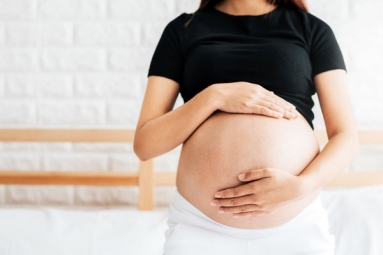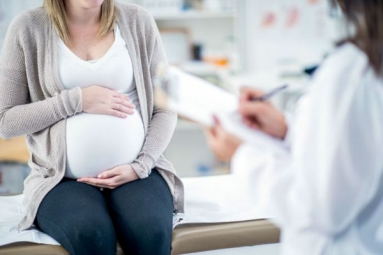Migraine Could Lead to Complications During Pregnancy: Study
July 04, 2019 16:13
(Image source from: American Migraine Foundation)
Women with migraine can be at high risk of stillbirth and giving birth to a child with low weight, says a recent study.
According to the study, published in the journal of 'Head and Face Pain’, prescription migraine drugs may ease complications.
The study calls into question the general perception that pregnant women who suffer from migraine find the number and acuteness of severe headaches decreasing during pregnancy.
"The study shows that pregnant women with migraine more often have complications in connection with their pregnancy and childbirth than women who don't suffer from migraine," says Nils Skajaa, BSc, who is the study's lead author.
"Newborn babies whose mothers suffered from migraine during pregnancy also have an increased risk of complications such as respiratory distress and febrile seizures," adds Skajaa.
The researchers worked with over 22,000 pregnant women suffering from migraine who were compared with close to ten times larger group of pregnant women without known migraine.
One finding in the study is that the risk of cesarean sections is 15-25 percent higher for pregnant women with migraine than pregnant women without migraine. Around 20 percent of all births in Denmark is by the cesarean section.
Researchers have as well made use of the same data to conclude that migraine medication perhaps prevents some of the complications. However, the results must be interpreted with caution, as Skajaa explains.
"The study was not specifically designed to examine this aspect. However, we show that the risk of complications generally was lower for pregnant women with migraine who took medication when compared with pregnant women with migraines who were not treated," adds Skajaa.
"This also indicates that the migraine medication isn't the cause of the complications, but rather the migraine itself. This is important knowledge for pregnant women with migraine."
Though the actual cause of migraine, which affects as many women as men, remains unknown, previous research suggests that migraines may be caused due to stress, fatigue, or hormonal changes such as pregnancy.
"Paradoxically, women of childbearing age are particularly hard hit by migraines. Although experience shows that migraines become milder during pregnancy, this study emphasizes that the healthcare service should be particularly aware of pregnant women with migraine," concludes Nils Skajaa.
By Sowmya Sangam



















